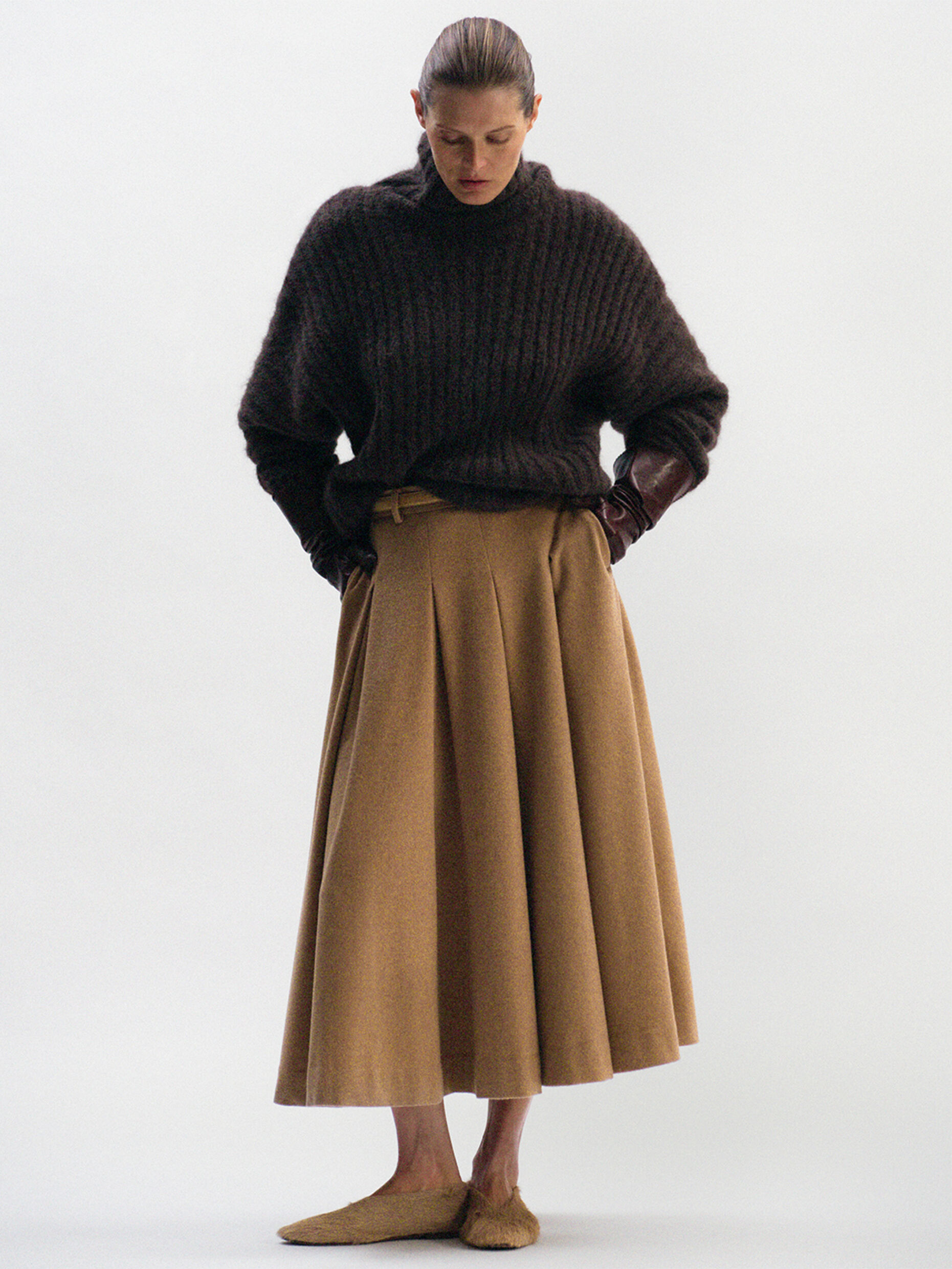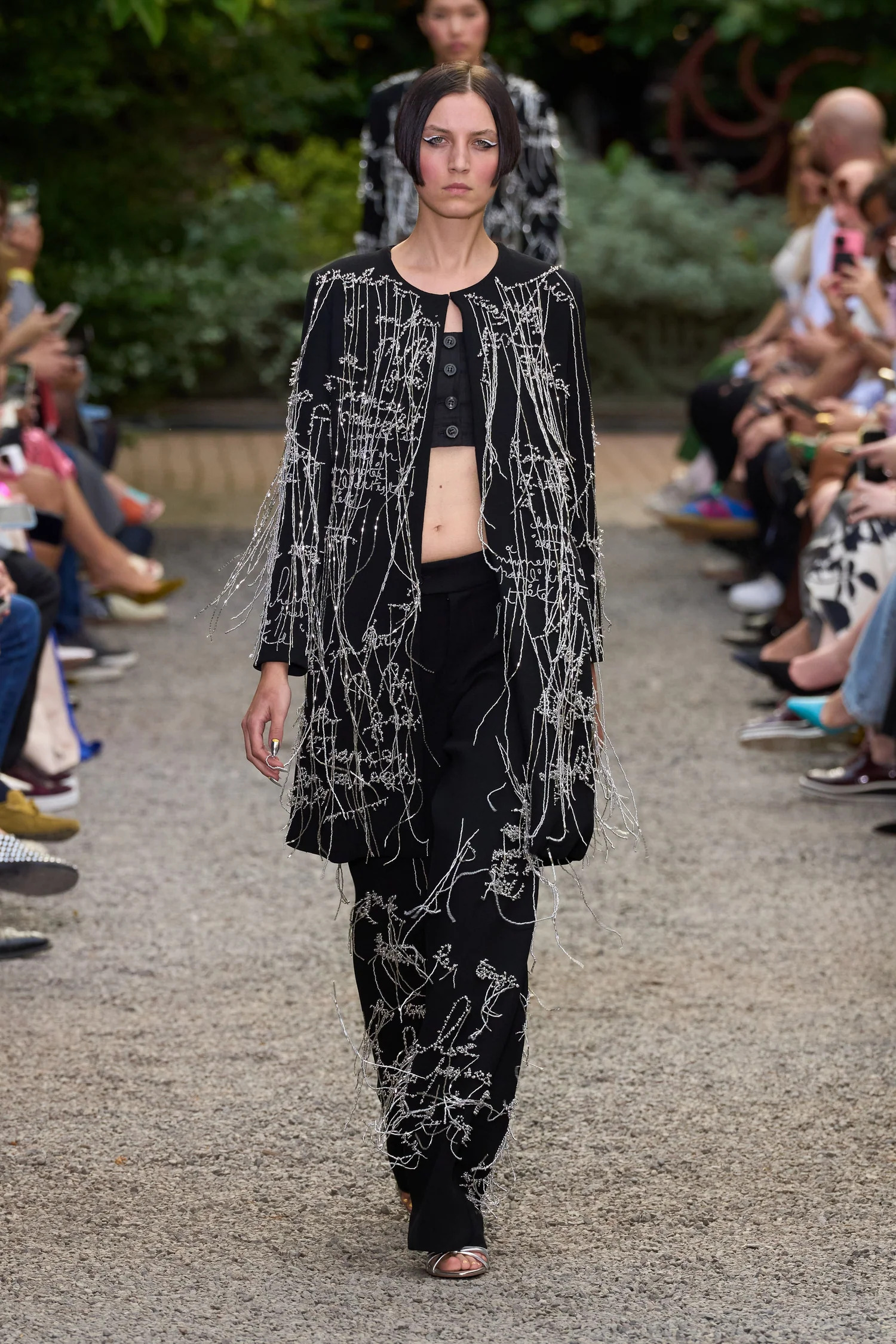WHY SHOPPERS ARE DITCHING LUXURY FOR INDIE BRANDS
- By KRISTOPHER FRASER
- 2 SEPTEMBER 2025
- 9 Min

Photo: Courtesy of By Malene Birger
For decades, luxury brands such as Chanel and Louis Vuitton were regarded as the pinnacle of quality, craftsmanship, and excellence. They were status symbols that signaled entry into a certain tax bracket, while also elevating an outfit. Luxury fashion pieces were among the most coveted items in the world, and customers trusted that these brands offered artisanal quality that would withstand the test of time.
Over the past several years, however, mass-market luxury brands have lost their appeal—not because consumers no longer desire luxury fashion, but because they have become less trusting of these brands and their business practices. In 2020, during the COVID-19 pandemic and amid supply chain issues, customers began complaining that Chanel’s quality—particularly for its famous Classic Flap bag—had declined.
On TikTok, videos surfaced of customers showing leather on their Classic Flaps fraying just months after purchase, leaving them dissatisfied—especially after spending thousands on a bag. Dior also went viral for claims that its $2,400 Book Totes cost only $60 to produce. Loro Piana, long associated with the wealthy and known for high-quality products ranging from $2,000–$3,000 cashmere sweaters to $30,000 vicuña coats, was reprimanded last month by an Italian court over worker abuse allegations.
This has led many consumers and members of the fashion industry to ask, “If you can’t trust Loro Piana, who can you trust?”—fueling an ongoing debate over whether luxury brands are still worth the investment. Yet the psychology of fashion marketing persists, as people continue to enjoy having a status symbol better than the next person—whether that’s a house, car, or clothing.
As household-name brands face controversy over quality and manufacturing practices, smaller independent brands are finding their moment to shine. Independent fashion boutiques are also experiencing a renaissance.
Elyse Walker has become one of the most powerful luxury retail players, especially as major department stores like Barneys New York and Lord & Taylor have shuttered. While the store carries many household-name luxury brands, ranging from Gucci to Balenciaga, its website includes an entire section dedicated to new designers. Among the brands featured are Francoise, By Malene Birger, and Escvdo. Francoise focuses on rare pieces and vintage fabrics; By Malene Birger exemplifies Scandinavian minimalism; and Escvdo combines contemporary design with Peru’s textile heritage.
Although Elyse Walker continues to source up-and-coming designers from major fashion capitals—New York, London, Milan, and Paris—the platform has also been spotlighting designers from South America and Scandinavia, regions often overlooked in favor of the big four capitals. The retailer also carries prominent independent New York-based brands, including Lapointe, Khaite, and Monse.
This diversity of offerings—from mass-market luxury to independent designers—has worked in Elyse Walker’s favor, helping it reach nine-figure revenue with $100 million in sales. Kirna Zabête, another multi-brand boutique with locations in New York, Pennsylvania, Florida, and Tennessee, follows a similar business model, carrying both mass-market brands while spotlighting independent and emerging designers.
The boutique’s website features a menu highlighting names such as Bite Studios, High Sport, and Libertine. Even its “Edits” section, which curates pieces based on trends or occasions, juxtaposes independent labels like Sir. next to legacy brands like Missoni.

Photo: Courtesy of ilovelibertine.com
Independent designers not only understand the significance of being carried by these luxury boutiques, but they are also realizing the power of collaboration. In July, J. Logan Home—a luxury label known for upcycling vintage designer scarves into shirts and home goods—partnered with Monse, a brand known for deconstructed tailoring and graphic prints, on a limited-edition collection. Several pieces sold out within weeks.
Mass-market retailers, too, are recognizing the value of collaborating with independents. Willy Chavarria has become one of the most prominent New York-based independent labels. He has dressed stars including Maluma, Lewis Hamilton, and Doechii. His runway shows are now among the most in-demand tickets at New York Fashion Week, and his global reach continues to expand—he recently presented his Spring 2026 collection at Paris Fashion Week.
Chavarria has also collaborated with brands ranging from K-Swiss to PacSun. Earlier this year, he partnered with Adidas on a collection so popular that the brand is bringing it back for a second edition.
The Council of Fashion Designers of America (CFDA) has supported the development of independent brands for more than 20 years through the CFDA/Vogue Fashion Fund. As consumers seek out smaller-scale labels, this year’s CFDA nominees are receiving unprecedented attention.
The ten finalists are Ashlyn, Aubero, Bach Mai, Bernard James, Don’t Let Disco, Gabe Gordon, Heirlome, Jamie Okuma, Meruert Tolegen, and Peter Do. Many of these brands have already secured top retail accounts: Ashlyn is sold at Bergdorf Goodman, Peter Do at Net-a-Porter, and Bach Mai at Neiman Marcus.
Despite the current economic challenges facing independent brands, now is their time to shine. In 2023, several independent labels filed for bankruptcy, including Christopher Kane, Dion Lee, and Interior. Brick-and-mortar stores faced steep challenges post-pandemic, and the shutdown of e-commerce retailers like MatchesFashion dealt an additional blow, leaving many designers with unpaid invoices.
Now, however, as consumers seek products that are unique, produced in smaller quantities, and more sustainable, independent brands are finally having their moment. As customers drift away from legacy houses making headlines for quality concerns, 2025 and 2026 may prove to be the true test of how fast the independent fashion market can grow.
